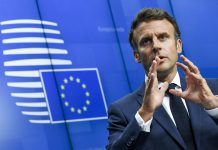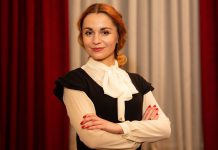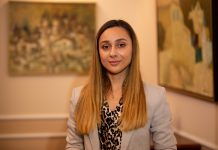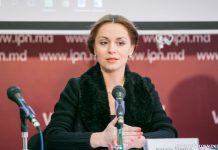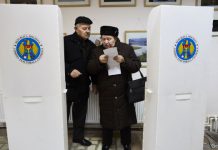Both countries are continuing a long-standing game of playing Russia and the West against each other.
PRO-RUSSIAN candidates won presidential elections in Moldova and Bulgaria on November 13th, or so the headlines read. The truth in both countries was more complicated. While the winning candidates have made friendly overtures to Moscow, neither will make any radical changes in geopolitical orientation in the short term. The power of the presidents in both countries is limited. Some of their supporters seem to be hoping that Russia will subsidise their countries struggling economies. Such hopes are destined to be disappointed.
In Moldova the winner is Igor Dodon, the leader of the Socialists, who form the largest party in parliament but are not part of the current coalition government. He took 52.3% of the vote against 47.7% for Maia Sandu, a former World Bank adviser and education minister who campaigned on an anti-corruption platform. As minister of education from 2012-2015 Ms Sandu gained popularity by stamping out bribery in the school system, and polls show she is seen as the least corrupt politician in the country.
Mr Dodons side brought several thousand residents of the Russian-controlled breakaway territory of Transnistria, where there was no balloting, into government-controlled Moldova. Ms Sandu would have done well among the Moldovan diaspora in the West, but not Russia, but ballot papers at Moldovan embassies in several Western countries ran out or disappeared. On November 14th protesters took to the streets in Chisinau, claiming that Ms Sandu had been cheated of victory. She says she is going to challenge the elections in the countrys constitutional court, claiming they were rigged.
It is tempting to paint the election as a simple contest between pro-Russian and pro-European politicians. But in fact, political life in Moldova is dominated by oligarchs motivated by financial rather than geopolitical interests. Pavel Filip, the prime minister, is closely linked to Vlad Plahotniuc, Moldovas most powerful businessman (and its most unpopular politician).
Before the election, Mr Plahotniuc said he would support the pro-European politician with the greatest chance of winning. But Victoria Bucataru of the Foreign Policy Association, a Moldovan think-tank, suspects that Mr Dodon and Mr Plahotniuc had a secret alliance” to stop Ms Sandu and her reform agenda. She anticipates that Mr Dodon will follow his announced first visit to Moscow with a reassuring one to Brussels. His election pledges to tear up Moldovas agreements with the European Union will be ignored, not least because—unlike Russia—the EU, its member countries and America give Moldova large amounts of aid. Ever since $1 billion was stolen from Moldovas banking system in 2014 (probably by local oligarchs), the country has been dependent on assistance from the IMF to prop up its financial system. Ms Bucataru thinks Mr Dodons pro-Russian rhetoric is a way of pressuring the West to keep up the flow of funds, while avoiding any serious reform.
In Bulgaria the situation is equally Byzantine. The winning candidate, Rumen Radev of the Socialist Party, is a former MiG-29 pilot and commander in the countrys air force. He defeated a candidate supported by the party of Boyko Borisov, the prime minister, who promptly resigned. A general election will probably be held next spring.
Mr Radev was supported by Bulgarias ethnic Turkish community, whose main party has close links both to domestic oligarchs and to Russian businesses. Bulgarias Socialists are supported by conservative pensioners and the Moscow-linked Orthodox Church. Yet in previous governments, the party assented to hosting American military bases in Bulgaria and embraced NATO membership.
Dimitar Bechev of Harvard University says the country can have its cake and eat it too,” by remaining a loyal member of the EU and NATO while reaching out to Russia. Indeed, he says his stance is little different from that of Mr Borisov. In Mr Radevs words: Until recently, I flew a Soviet jet fighter. I graduated from an American academy. But I am a Bulgarian general. My cause is Bulgaria.” Mr Bechev says the countrys post-election positions will be determined by and for Bulgarian politicians and not because of Mr Putin or Brussels.”
The headlines announcing that pro-Russian candidates have won the presidency in both countries are bound to alarm many in the West and bring applause from Moscow. But the reality is that politics in both countries is driven by domestic forces, most prominently oligarchs efforts to secure their financial interests. Their leaders are well versed in the art of playing the West and Russia against each other. Expect more of that, rather than any dramatic geopolitical shifts.



